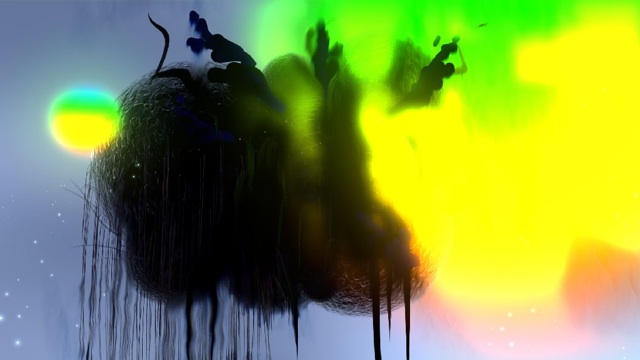Im/mortality and In/finitude in the Anthropocene
I’m very excited to announce a symposium to be held in Stockholm later this year: “Im/mortality and In/finitude in the Anthropocene: Perspectives from the Environmental Humanities.”
The event is co-organised by Michelle Bastian (University of Edinburgh) and me and hosted by The Environmental Humanities Laboratory in the Division of History of Science, Technology and Environment at the KTH Royal Institute of Technology. It will be on from 2-4 December 2014.
Full details are available on the symposium website.
Confirmed Keynote Speakers
Vinciane Despret (Université de Liège, Belgium)
Joseph P. Masco (University of Chicago, USA)
Deborah Bird Rose (University of New South Wales, Australia)
Sverker Sörlin (Royal Institute of Technology, Sweden)

Call for Papers
While the fear of capricious immortals living high atop Mount Olympus may have waned, the current age of the Anthropocene appears to have brought with it insistent demands for us mere mortals to engage with unpredictable and dangerous beings that wield power over life itself. Plastics, radioactive waste, fossil fuels and species extinctions have interpellated us into unfathomably vast futures and deep pasts, with their effects promising to circulate through air, water, rock and flesh for untold millions of years. Human time, geological time and a host of other temporal frames and possibilities confront each other in new ways, with little understanding on our part of how to find calibrations that might allow a reconciliation between them (Hatley; Chakrabarty; Bastian; Metcalf and van Dooren).
One consequence is that relationships between life and death, creation and decay have become uncanny; no longer entailing what was once taken for granted. The unravelling of inter-generational and inter-species relationships in the current mass extinction event shifts death from being a partner to life toward the ‘double death’ that amplifies mortality until it overruns life altogether (Rose). While at the same time, the finitude of acts of creation, evoked so clearly in Shelley’s Ozymandias, is no longer as certain as it might once have been. Instead, in specific, but crucial contexts, it is not the dissipation and silencing of our creative and technical works that is feared, but the threat that they might circulate endlessly (Masco; Morton).
The aim of this symposium, then, is to explore the shifting relationships between time, mortality and finitude in the context of the Anthropocene. In particular, we are interested in the kinds of critical approaches to time-telling, knowledge-making and care-taking that might be called for by way of response. How might we ‘learn to be affected’ (Despret) in new ways; how might practices of ‘passionate immersion’ create new avenues for hope, care and knowledge (Tsing; Haraway)? Some of the questions and concerns that will animate this discussion include:
- How might the way we are being pressed into engagement with earthly ‘immortals’ require new approaches to creativity, imagination and responsibility?
- How might we attend more closely to the diversity of temporal frames that shape relationality, and in particular their different patterns of living and dying?
- What more needs to be explored in regard to notions of disposability, reuse, recycling, re-capture, bio-degradability and other endeavours that evoke the promise of decay without ‘remainder’ (Gabrys) but rarely deliver on it?
- What should we make of various attempts to re-form life such as re-wilding and de-extinction? Are they driven by desires to reverse time and/or death, or are more complicated relationships between life/time/death being produced?
- How have new technologies and approaches to “analysis, observing, measuring, and monitoring” shaped the space within which we understand and respond to our changing world (Sörlin)?
- What kinds of temporalities animate our living planet (Clark; Yusoff)? Can we speak of the time(s) of the earth? Can we understand environmental crisis – in both its causes and consequences – as a breakdown of synchronicities of various kinds?
- What accounts of time would allow us purchase on the kinds of issues at stake? Antidotes to fast, short-term, linear thinking have centred around their binary oppositions of slow, long-term and circular, but how might we develop more critical and complicated approaches?
References Cited
Bastian M. (2012) Fatally Confused: Telling the Time in the Midst of Ecological Crises. Environmental Philosophy 9: 23–48.
Chakrabarty D. (2009) The Climate of History: Four Theses. Critical Inquiry 35: 197-222.
Clark N. (2011) Inhuman Nature: Sociable Life on a Dynamic Planet, Sage, London: Sage.
Despret V. (2004) The Body We Care for: Figures of Anthropo-zoo-genesis. Body and Society 10: 111-134.
Gabrys J. (2011) Digital Rubbish: A Natural History of Electronics, Ann Arbor: University of Michigan Press.
Haraway D. (2008) Sharing Suffering: Instrumental Relations Between Laboratory Animals and their People. When Species Meet. Minneapolis: University of Minessota Press, 69-93.
Hatley J. (2012) The virtue of temporal discernment: Rethinking the extent and coherence of the good in a time of mass species extinctions. Environmental Philosophy 9: 1-21.
Metcalf J and van Dooren T. (2012) Temporal Environments: Rethinking Time and Ecology. Special issue of Environmental Philosophy 9.
Masco J. (2006) The Nuclear Borderlands: The Manhattan Project in Post-Cold War New Mexico, Princeton: Princeton University Press.
Morton T. (2013) Hyperobjects: Philosophy and Ecology After the End of the World, Minneapolis: University of Minnesota Press.
Rose DB. (2006) What if the Angel of History Were a Dog? Cultural Studies Review 12.
Sörlin S. (2013) Reconfiguring environmental expertise. Environmental Science and Policy 28: 14-24.
Tsing A. (2011) Arts of Inclusion, or, How to Love a Mushroom. Australian Humanities Review 50: 5-22.
Yusoff K. (2013) Geologic life: prehistory, climate, futures in the Anthropocene. Environment and Planning D: Society and Space 31: 779-795.
